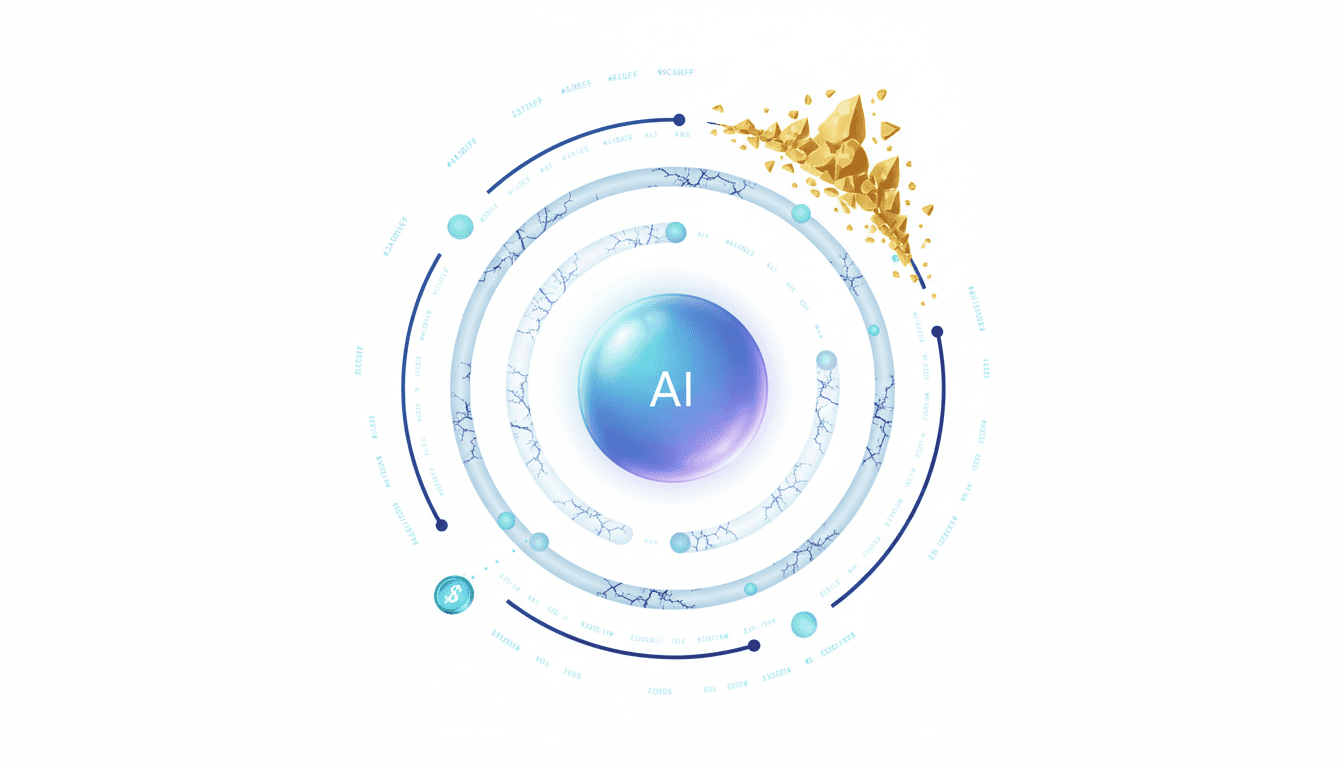Perplexity Getty Images Deal: Quick Take & Analysis

⚡ Quick Take
Perplexity's multi-year licensing deal with Getty Images to display attributed visual content is a landmark attempt to solve AI's copyright problem, but its deafening silence on a critical distinction—display rights versus training rights—reveals the next major fault line in the AI content wars. This partnership signals a market shift from web scraping to structured licensing, forcing competitors to re-evaluate their own data pipelines and legal exposure.
Summary: AI-native search engine Perplexity has entered a multi-year partnership with Getty Images. The deal grants Perplexity API access to display creative and editorial images from Getty's vast library within its answers, complete with attribution and links back to the source.
What happened: Following the announcement, Getty Images' stock (GETY) surged, signaling strong investor confidence in this new revenue stream. The partnership was framed by both companies as a win for user experience and creator rights, providing licensed, high-quality visuals for AI-generated responses.
Why it matters now: This is one of the most significant moves by an AI search company to replace legally-gray image sourcing with a formal, commercial licensing model. It sets a crucial precedent in the race for "copyright-safe AI" and puts pressure on generative AI players like Google and OpenAI to clarify and formalize their own content relationships.
Who is most affected: Perplexity gains a defensible, premium content pipeline. Getty Images validates its business model for the AI era. Creators and photographers get promised attribution, but the financial model remains opaque. Competing AI providers must now contend with a new standard for content legitimacy.
The under-reported angle: While the deal explicitly covers the display of images, both companies have remained silent on whether this content can be used for training future models. This critical ambiguity, highlighted by legal and copyright experts, leaves the door open to future conflict and fails to fully resolve the core issue of uncompensated use of creative work for model improvement.
🧠 Deep Dive
Have you ever wondered how AI companies might finally thread the needle on copyright issues without tripping over their own feet? Perplexity's partnership with Getty Images feels like one such careful step forward in the AI industry's tangled wrestle with intellectual property. From what I've seen in these kinds of deals, it's a smart play for Perplexity - they're cleaning up their image sourcing after some tough questions about attribution, trading that hazy legal ground for a solid commercial contract. And for Getty Images? It's a real boost, proving their huge content library can power the AI world and opening up a fresh B2B revenue line that investors snapped up right away with that stock jump. Really, this whole thing marks a shift away from the old "move fast and break things" vibe of just scraping the web, toward something more grown-up, where AI outfits actually pay for what they use.
But here's the thing - and it's a big one - the setup of this partnership spotlights a tension that's nagging at everyone in AI: where do you draw the line between just showing content and actually training on it? The announcements stick to talking about "display," with promises of attribution and links back to sources. That said, they don't touch on whether Perplexity's barred by contract from feeding that API data into their models for tweaks and improvements. Critics have a point here; in the world of machine learning, every bit of data you touch could turn into a learning moment. Without clear rules in the contract or tech barriers to back them up, separating a simple image show from pulling lessons on composition, subjects, even metadata - well, that line gets fuzzy fast. It's not just a side note, either; this blur is right at the heart of why creators worry their stuff ends up fueling big AI without a fair shake or payout.
Of course, this isn't happening in isolation. It's part of those bigger "AI Content Wars," where the tech heavyweights are rushing to lock down licensed data flows. OpenAI's already signed on with the Associated Press and Shutterstock, and Google, from what we hear, has something cooking with Reddit. Each of these is about building a sturdy wall of "clean data" that holds up in court and draws in business users wary of copyright headaches. The Perplexity-Getty tie-up cranks up the pressure, weaving top-tier visuals straight into how AI spits out answers and setting a fresh bar for what counts as a "responsible" product.
In the end, sure, the deal adds a layer of credibility with all that attribution - but it stirs up deeper puzzles about how digital content will make money going forward. Could these platform deals spark royalties that actually reach photographers and artists one by one? Or will the cash just pool at the top, padding Getty's pockets while creators get stuck with a mere link? With so little said about how creators get paid or ways to opt out, I'm leaning toward the riskier side. This might patch Perplexity's short-term worries, but it leaves those core economic riddles about the creative world in AI's shadow hanging there, unresolved.
📊 Stakeholders & Impact
Stakeholder / Aspect | Impact | Insight |
|---|---|---|
AI / LLM Providers | High | Perplexity gains a copyright-defensible asset and a superior visual product. Competitors like Google face new pressure to formalize their own tangled web of content sourcing. |
Content Platforms | High | Getty Images establishes a lucrative blueprint for monetizing its archive in the AI era. This validates licensing as a primary growth driver, attracting investor interest. |
Creators / Photographers | Medium-High | The deal promises attribution via source links, offering exposure. However, the lack of clarity on royalty models and training rights means the financial benefit remains uncertain. |
Regulators & Policy | Significant | This market-led solution sets a precedent that could influence how regulations like the EU AI Act approach data transparency and copyright, potentially favoring large-scale licensing deals. |
✍️ About the analysis
This analysis is an independent i10x review based on an extensive dataset of official announcements, financial market reports, and critical commentary from legal and tech industry experts. It is written for developers, product managers, and strategists working to navigate the evolving legal and ethical landscape of AI development.
🔭 i10x Perspective
What if this Perplexity-Getty deal is sketching out the shape of tomorrow's online economy? It's more than just a content license, really - it's like a roadmap showing how the web's old habit of grabbing content without paying up is getting called out, not by rules from above, but by the raw push of generative AI. I've noticed how AI firms are changing tracks, moving from scavenging data to stepping up as proper subscribers in the content game.
The real question lingering here, though, and it's a pivotal one, is who ends up winning in this setup. Might these big-deal partnerships build something fairer, where creators get their due through things like C2PA standards for tracking content origins? Or could they just lock in a new power split between huge AI players and content giants, slicing up the pie while solo artists settle for a nod in the credits? Keeping an eye on how they sort out that "display vs. training" tangle will reveal plenty about where creativity and business are headed next.
Related News

OpenAI Nvidia GPU Deal: Strategic Implications
Explore the rumored OpenAI-Nvidia multi-billion GPU procurement deal, focusing on Blackwell chips and CUDA lock-in. Analyze risks, stakeholder impacts, and why it shapes the AI race. Discover expert insights on compute dominance.

Perplexity AI $10 to $1M Plan: Hidden Risks
Explore Perplexity AI's viral strategy to turn $10 into $1 million and uncover the critical gaps in AI's financial advice. Learn why LLMs fall short in YMYL domains like finance, ignoring risks and probabilities. Discover the implications for investors and AI developers.

OpenAI Accuses xAI of Spoliation in Lawsuit: Key Implications
OpenAI's motion against xAI for evidence destruction highlights critical data governance issues in AI. Explore the legal risks, sanctions, and lessons for startups on litigation readiness and record-keeping.